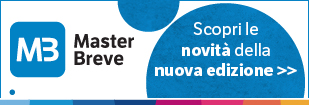An auditors’ report
di Enrico ZappaJustin RaineyWe have audited the financial statements of XXX plc[1] for the period ended 31 August 2013 which comprise of the Consolidated Statement of Comprehensive Income, the Consolidated Statement of Financial Position, the Consolidated Statement of Changes in Equity, the Consolidated Statement of Cash Flows, the Parent Company Balance Sheet and the related notes.
The financial reporting framework that has been applied in the preparation of the group financial statements is applicable law and International Financial Reporting Standards (IFRSs) as adopted by the European Union. The financial reporting framework that has been applied in the preparation of the Parent Company financial statements is applicable law and United Kingdom Accounting Standards (United Kingdom Generally Accepted Accounting Practice).
This report is made solely to the company’s members, as a body, in accordance with Chapter 3 of Part 16 of the Companies Act 2006. Our audit work has been undertaken so that we might state to the company’s members those matters we are required to state to them in an auditor’s report and for no other purpose. To the fullest extent permitted by law, we do not accept or assume responsibility to anyone other than the company and the company’s members as a body, for our audit work, for this report, or for the opinions we have formed.
Respective responsibilities of directors and auditors
As explained more fully in the Statement of Directors’ Responsibilities, the directors are responsible for the preparation of the financial statements and for being satisfied that they give a true and fair view. Our responsibility is to audit and express an opinion on the financial statements in accordance with applicable law and International Standards on Auditing (UK and Ireland). Those standards require us to comply with the Auditing Practices Board’s Ethical Standards for Auditors.
Scope of the audit of the financial statements
An audit involves obtaining evidence about the amounts and disclosures in the financial statements sufficient to give reasonable assurance that the financial statements are free from material misstatement, whether caused by fraud or error. This includes an assessment of: whether the accounting policies are appropriate to the company’s circumstances and have been consistently applied and adequately disclosed; the reasonableness of significant accounting estimates made by the directors; and the overall presentation of the financial statements.
We read all the financial and non-financial information in the Chairman’s Statement, Directors’ Report and Corporate Governance Statement and any other surround information to identify material inconsistencies with the audited financial statements. If we become aware of any apparent material misstatements or inconsistencies we consider the implications for our report.
Opinion on financial statements
In our opinion:
- the financial statements give a true and fair view of the state of the group’s and of the parent company’s affairs as at 31 August 2013 and of the group’s profit for the year then ended;
- the group financial statements have been properly prepared in accordance with IFRSs as adopted by the European Union;
- the parent company financial statements have been properly prepared in accordance with United Kingdom Generally Accepted Accounting Practice; and • the financial statements have been prepared in accordance with the requirements of the Companies Act 2006.
Opinion on other matters prescribed by the Companies Act 2006
In our opinion the information given in the Directors’ Report for the financial year for which the financial statements are prepared is consistent with the financial statements.
Matters on which we are required to report by exception
We have nothing to report in respect of the following matters where the Companies Act 2006 requires us to report to you if, in our opinion:
- adequate accounting records have not been kept by the parent company, or returns adequate for our audit have not been received from branches not visited by us; or
- the parent company financial statements are not in agreement with the accounting records and returns; or
- certain disclosures of directors’ remuneration specified by law are not made; or
- we have not received all the information and explanations we require for our audit.
[1] Plc: public limited company/società quotata
[2] Dichiarazione di limitazione di responsibilità
COMPREHENSION EXERCISES
Exercise 1.
Collocation: a familiar grouping of words, especially words that habitually appear together and thereby convey meaning by association.
Match the verbs (a-i) with the nouns (1-7) to form the collocations used in the text.
| Verb | Noun |
| a. accept |
b. apply
c. assume
d. audit
e. form
f. obtain
g. prepare
h. state
i. undertake1. audit work
2. responsibility (2 verbs)
3. evidence
4. financial reporting framework
5. matters
6. financial statements (2 verbs)
7. opinions
Exercise 2
What difference is there between the Financial Reporting Framework used in the preparation of the Group statements and those of the Parent Company?
Exercise 3
What disclaimers[2] do the auditors make?
Exercise 4
What, according to the text, does an audit involve?
Exercise 5
What reports and statements that make up XXX plc’s financial statements did the auditors examine?
Exercise 6
Which word is the ‘odd one out’ and why?
misstatement; disclosures; inconsistencies
ANSWERS
Exercise 1.
a. accept responsibility;
b. apply financial reporting framework
c. assume responsibility
d. audit financial statements
e. form opinions
f. obtain evidence
g. prepare financial statements
h. state matters
i. undertake audit work
Exercise 2
The financial reporting framework applied in the preparation of the group financial statements is applicable law and International Financial Reporting Standards (IFRSs) as adopted by the European Union; the financial reporting framework applied in the preparation of the Parent Company financial statements is applicable law and United Kingdom Accounting Standards (United Kingdom Generally Accepted Accounting Practice).
Exercise 3
- the report is made solely to the company’s members to state to them those matters required to be stated in an auditor’s report and for no other purpose.
- to the fullest extent permitted by law, the auditors do not accept or assume responsibility to anyone other than the company and the company’s members as a body, for their audit work, for this report, or for the opinions formed.
- The auditors’ responsibility is to audit and express an opinion on the financial statements in accordance with applicable law and International Standards on Auditing (UK and Ireland) and consequently to comply the with the Auditing Practices Board’s Ethical Standards for Auditors.
Exercise 4
An audit involves (i) obtaining evidence about the amounts and disclosures in the financial statements
sufficient to give reasonable assurance that the financial statements are free from material misstatement,
whether caused by fraud or error; and (ii) making an assessment of whether the accounting policies are
appropriate to the company’s circumstances and have been consistently applied and adequately disclosed.
Exercise 5
Consolidated Statement of Comprehensive Income, the Consolidated Statement of Financial Position, the Consolidated Statement of Changes in Equity, the Consolidated Statement of Cash Flows, the Parent Company Balance Sheet and the related notes, the financial and non-financial information in the Chairman’s Statement, Directors’ Report and Corporate Governance Statement and any other related information.
Exercise 6
Disclosures, because it does not have a negative sense.
con fatturazione mensile
con fatturazione anticipata





















